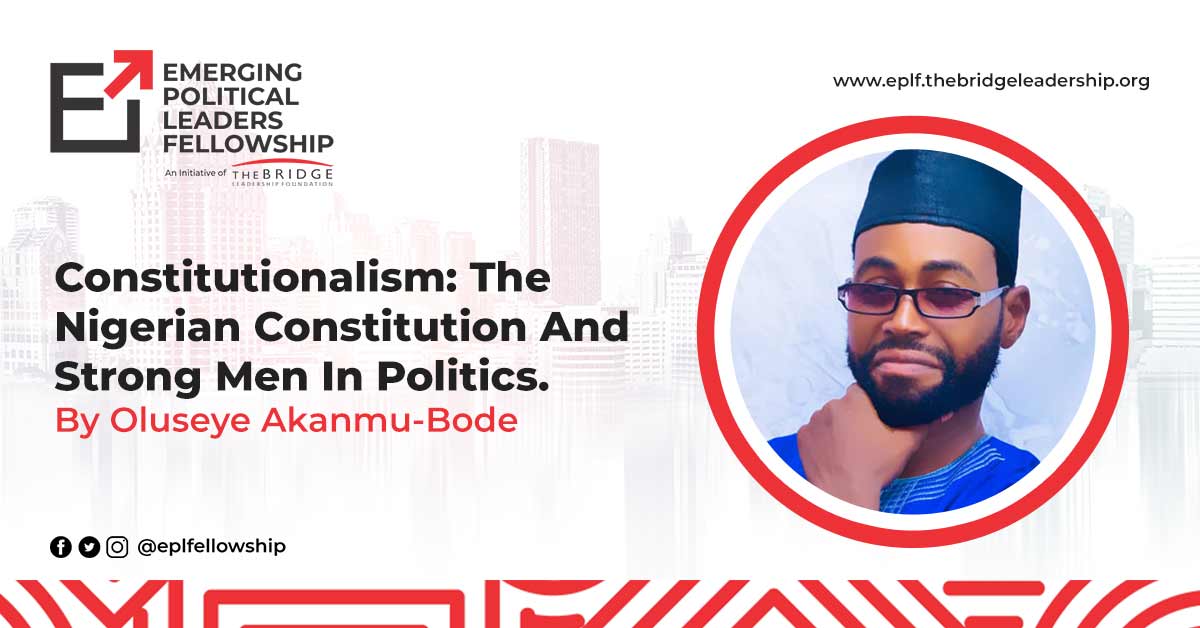“It is getting harder to run a constitution than to frame one” Woodrow Wilson.
A constitution is, broadly, a set of rules, written and unwritten, that seek to establish the duties, powers and functions of the various institutions of government. It regulates the real relationships between them and defines the relationship between the state and the individual. Constitutionalism is the practice of limited government ensured by the existence of a constitution, that is, it exists when government institutions and political processes are effectively constrained by constitutional rules. Woodrow Wilson, a professor of Political Science and former President of the US gave an immemorial quote which headlined this piece and it effectively captures the challenges faced by nations in acting in accordance with the spirit and letters of the law, which is, of the rule of law and constitutionalism.
Wilson isn’t alone in this frustration, as one of the greatest English scholars and statesman, Lord Bryce said, ” all governments are faulty’, and equally minute analysis of the constitutions of England, France or Germany would disclose mischiefs as serious as those we have noted in the American system. To anyone familiar with the practical working of free governments, it is a standing wonder they work at all”.
The constitution is the ground norm, thus a sine qua non for every society. Even military and communist regimes had one form of law and order to protect their reigns! The quest for a new constitution by Nigerians, very noble and rational, may not necessarily translate into positive democratic performance. Since 1999, there have been growing demands for constitutional amendments and restructuring with the latter essentially requiring a brand new constitution. While there have been several amendments to the 1999 Nigerian constitution, the political will for restructuring has been gravity impossible for certain known reasons. The National Assembly as the legislature is constitutionally empowered to amend the constitution. Despite having a written constitution, we still have lacunas that we cite as the basis of our poor democratic performance.
However, three liberal democracies like Israel, New Zealand and the UK continue to have unwritten constitutions without laying down major constitutional provisions but are seen as organic entities that have evolved through history and are embodied in customs and traditions. These three countries highlighted, pose better democratic performances than Nigeria with codified laws! Nigeria faces a leadership problem in which the strong men that dominate the body politics lack democratic ethos to allow constitutionalism and the rule of law, the bastions of constitutional democracy.
The constitution is made by man thus, no ” good constitution ” can be made by man to stand the test of time forever. For Constitutionalism to grow deeper, Nigeria needs to do more in bringing in strong men with an ethos that is congruent to the polity. These strong men (leaders) who are to promote constitutionalism without using certain imperfections in the constitution as an alibi because the constitution is unequivocal and unambiguous in charging the leaders under the Fundamental Objectives and Directive Principles of State Policy.
How are judges appointed? Should judges be political or are they political? What is the role of the judiciary in public policy? Should the judiciary be in cahoot with the executive on “national interest ” or strictly on constitutionalism and the rule of law? How crucial is judicial activism in underlining and underpinning the raison d’être of constitutional democracy? How often should the judiciary exercise its power of Judicial Review? How are political leaders recruited ( elected) into public offices? These are philosophical questions that I think determine the degree of democratic performance as it relates to constitutionalism, rule of law and the constitution. While institutions are enduring, we still need strong men that will enable the institutions to get harder on the rules and processes by making it difficult to be circumvented, and offering punishments to offenders. The Bill of Rights is a creation of certain strong men in American history, subsequently, the society has continued to produce more leaders who have upheld the constitution even in its imperfect state as the US constitution too had gone through several amendments. The constitution will forever be amended to reflect changing times, realities and challenges, and that’s why the legislature exists, however, the leadership must be right in Nigeria.
Written by Oluseye Akanmu-Bode

